Photo Enforcement Sign Requirements in Arizona
What does the law require for photo enforcement signs? What are the signage requirements for photo a photo enforcement zone? Do they have to put up warning signs for photo enforcement? These are good questions that I get from callers.
Arizona law requires:
Every local authority or agency of the State or Arizona using a photo enforcement system must adopt standards and specifications that indicate to a person operating a motor vehicle that a photo enforcement system is present and operational. There is an exception, which is: These standards do not apply however to a mobile photo enforcement vehicle during the time a mobile photo enforcement vehicle is deployed on streets with a posted speed limit of forty miles per hour or less.
But if it is a posted speed limit of more than forty miles per hour, the standards and specifications must include both of the following:
1. At least two signs shall be placed in a location before a photo enforcement system. One sign shall be in a location that is approximately three hundred feet before the photo enforcement system. Placement of additional signs shall be more than three hundred feet before a photo enforcement system to provide reasonable notice to a person that a photo enforcement system is present and operational.
2. Signs indicating a photo enforcement system shall be removed or covered when the photo enforcement system is no longer present or not operating.
Signs erected by a local authority or agency of this state as prescribed in this section shall contain a yellow warning notice and correlate with and as far as possible conform to the system set forth in the most recent edition of the manual on uniform traffic control devices for streets and highways.
The Manual for Uniform Traffic Control Devices for Streets and Highways requires the sign to be posted at a height of at least 7 feet if permanent and at least 5 feet if temporary. The Border must be the same color as the legend and reside at or just inside the edge of the sign. The letters must be at least 8 inches high, and the sign should be placed on the right side of the roadway. The sign also must be reflect light and be visible at night.
If the standards and specifications prescribed pursuant to this section are not in effect during the operation of a photo enforcement system, the court may dismiss any citation issued to a person who is identified by the use of the photo enforcement system.
During the time a vehicle containing photo enforcement equipment is being used to identify violators of this article and article 6 of this chapter, the rear of the vehicle shall be clearly marked to indicate that the vehicle is functioning as a photo enforcement vehicle.
Commentary
Before you get your hopes up in winning a case based on improper signage, note the word ‘may’ in the part of the statute that reads “If the standards and specifications prescribed to this section are not in effect during the operation of a photo enforcement system, the court may dismiss any citation issued . . . “
This is what we lawyers call a toothless law. If law enforcement or the private entity law enforcement employs fails to comply with the law on this highly lucrative enforcement method, the judge does not have to dismiss the citation. It is discretionary with the judge. In other words you can win your case and prove that law enforcement violated the law and still be required to pay the money they are seeking, be held responsible for the points against your license, and suffer increased insurance rates etc.
Imagine if we as citizens could have discretion as to whether or not to follow the law. Imagine going to court and being found responsible for a traffic violation and ordered by a judge to pay a fine and being able to stand up and say, “You know judge, I don’t feel like following the law today, so I am going to have to ask you to reverse your finding and enter a finding of not responsible. Oh, and by the way I am going exercise my discretion not to pay the fine either.”
THE LAW OFFICE OF KARL A. MUELLER, PLC
Website: www.AzTrialLawyer.com
Call (602) 697-8761
Free 24 Hour Consultations
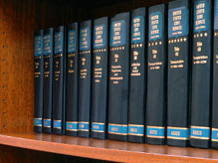.jpg)
Welcome to the Blog of:
THE LAW OFFICE OF
KARL A. MUELLER, PLC
Criminal
DUI
& Traffic Defense
For our WEBSITE click:
http://www.AzTrialLawyer.com/
Call: (602) 697-8761
Free 24 Hour Consultations
To E-MAIL Mr. Mueller
click: karl.mueller@azbar.org
KARL A. MUELLER, PLC
Criminal
DUI
& Traffic Defense
For our WEBSITE click:
http://www.AzTrialLawyer.com/
Call: (602) 697-8761
Free 24 Hour Consultations
To E-MAIL Mr. Mueller
click: karl.mueller@azbar.org
Karl & Lori Mueller

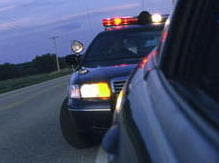.jpg)
Search This Blog
Blog Subjects
- Release, Bail & Bond
- Requirements for Photo Enforcement Signs in Arizona
- Reckless Under Arizona Law
- MVD Points in Arizona
- How Felonies are Charged in Arizona
- Do I Need a Lawyer for a Criminal Speeding Charge?
- Options If You Have Received a Traffic Ticket
- Driver's License Suspension vs. Revocation
- Driving on a Suspended License in Arizona
- Consequences of Not Appearing for a Traffic Ticket
- The Crime of Unlawful Flight
- A Class 6 Undesignated Felony Offense
- Misdemeanors in Arizona
- Felony Racing in Arizona
- Aggravated DUI in Arizona
- Driving Under the Influence in Arizona
- Consequences of Aggravated DUI
- What is Aggressive Driving?
- Consequences of Excessive Speeding or Criminal Speeding
- Consequences of Leaving the Scene
- Consequences of a Felony Conviction
- Consequences of DUI with Kids in the Car
- Defensive Driving School vs. Traffic Survival School
- Something to Consider Before You Plead Responsible to a Red Light Violation
- The Difference Between a Criminal Traffic and a Civil Traffic Case
- Questions to Ask a Lawyer
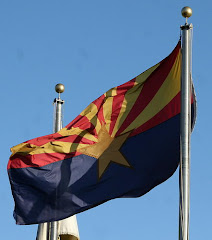.jpg)
Former Arizona State Prosecutor
Karl A. Mueller is an award winning Former Arizona State Prosecutor who worked in the:
Major Crimes Division
Special Crimes Division
Vehicular Crimes Bureau
Mr. Mueller received specialized law enforcement training and compelted courses in:
Accident Reconstruction
Impaired Driver Investigations
Field Sobriety Testing
Horizontal Gaze Nystagmus
Drug Impairment
Drug Recognition
Drug Recognition Exam/Expert (DRE)
Vehicular Homicide Investigations
Breath Alcohol Testing
Blood Alcohol Testing
Physiological Effects of Alcohol
Rhetrogade Extrapolation
Motor Vehicle Division Issues (MVD)
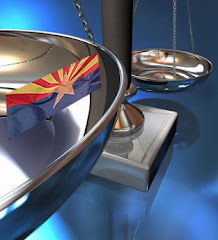.jpg)
Experienced Trial Lawyer
Karl A. Mueller has sucessfully tried over 100 felony vehicular related jury trials involving crimes such as Aggravated DUI, Vehicular Homicide, Leaving the Scene of an Accident, Unlawful Flight, and Endangerment.
The Rome Towers in Gilbert

Gilbert Location
Located in the Rome Towers
1760 E. Pecos Road, Suite 332
Gilbert, AZ 85295
Our Gilbert office is located right off the Val Vista Road exit of the Santan Freeway Corridor of the new Loop 202 Freeway in the Rome Towers.
1760 E. Pecos Road, Suite 332
Gilbert, AZ 85295
Our Gilbert office is located right off the Val Vista Road exit of the Santan Freeway Corridor of the new Loop 202 Freeway in the Rome Towers.
Tempe Office Location

Tempe Location
Located on Tempe Town Lake at Hayden Ferry Lakeside, 60 E Rio Salado Parkway, Suite 900 Tempe, AZ 85281
Tempe Office

Tempe Office Lobby

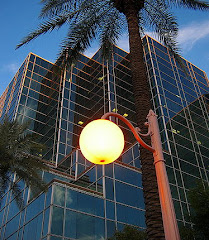.jpg)
Phoenix Location
Located in the Camelback Esplanade
2415 E. Camelback Road, Suite 700
Phoenix, AZ 85016
Our Phoenix office is located directly across from the Biltmore Fashion Par in the Esplanade Center in the heart of the Camelback Corridor at the corner of 24th Street and Camelback Road, located ajacent to the Ritz-Carlton hotel.
2415 E. Camelback Road, Suite 700
Phoenix, AZ 85016
Our Phoenix office is located directly across from the Biltmore Fashion Par in the Esplanade Center in the heart of the Camelback Corridor at the corner of 24th Street and Camelback Road, located ajacent to the Ritz-Carlton hotel.
Licensed to Practice Law in:
ARIZONA
CALIFORNIA
MONTANA
CALIFORNIA
MONTANA
For More Information:
THE LAW OFFICE OF
KARL A. MUELLER, PLC
CLICK on our Websites at:
http://www.AzTrialLawyer.com/
http://www.KarlMuellerLaw.com/
.jpg)
Mr. Mueller has practiced all over the State of Arizona and is experienced in both metropolitan and rural courtrooms.
.jpg)
19 Years of Trial Experience
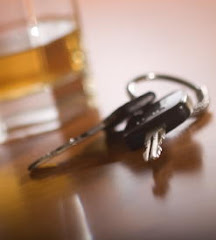.jpg)
Mr. Mueller has been called upon to offer Expert Opinion on the Prosecution of DUI
Disclaimer:
The information you obtain on this Blog is not, nor is it intended to be, legal advice. You should not rely on any information contained on this blog without consulting a lawyer for advice regarding your individual situation. We welcome your calls, letters and electronic mail, however simply contacting us does not create an attorney-client relationship.
The Law Office of Karl A. Mueller, PLC
Website: www.AzTrialLawyer.com
Telephone: (602) 697-8761
Facsmile: (480) 686-9122
Email: karl.mueller@azbar.org
Mailing Address: P.O. Box 220 Higley AZ, 8536
Gilbert Location: 1425 S. Higley Road, Suite 104 Gilbert, AZ 85296
Tempe Location: Hayden Ferry Lakeside 60 E Rio Salado Parkway Suite 900Tempe, AZ 85281
Phoenix Location: 2415 E. Camelback Road, Suite 700 Phoenix, AZ 85016
The information you obtain on this Blog is not, nor is it intended to be, legal advice. You should not rely on any information contained on this blog without consulting a lawyer for advice regarding your individual situation. We welcome your calls, letters and electronic mail, however simply contacting us does not create an attorney-client relationship.
The Law Office of Karl A. Mueller, PLC
Website: www.AzTrialLawyer.com
Telephone: (602) 697-8761
Facsmile: (480) 686-9122
Email: karl.mueller@azbar.org
Mailing Address: P.O. Box 220 Higley AZ, 8536
Gilbert Location: 1425 S. Higley Road, Suite 104 Gilbert, AZ 85296
Tempe Location: Hayden Ferry Lakeside 60 E Rio Salado Parkway Suite 900Tempe, AZ 85281
Phoenix Location: 2415 E. Camelback Road, Suite 700 Phoenix, AZ 85016
